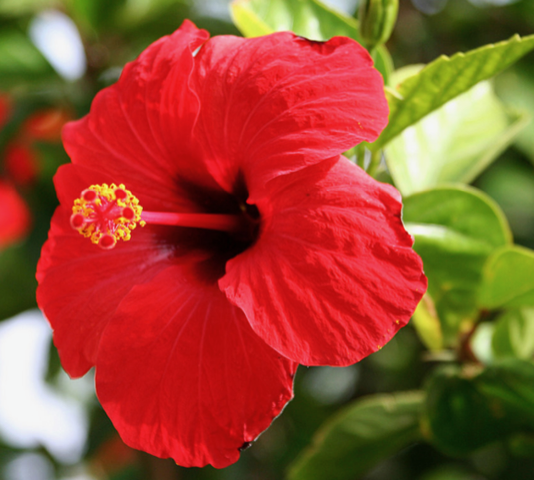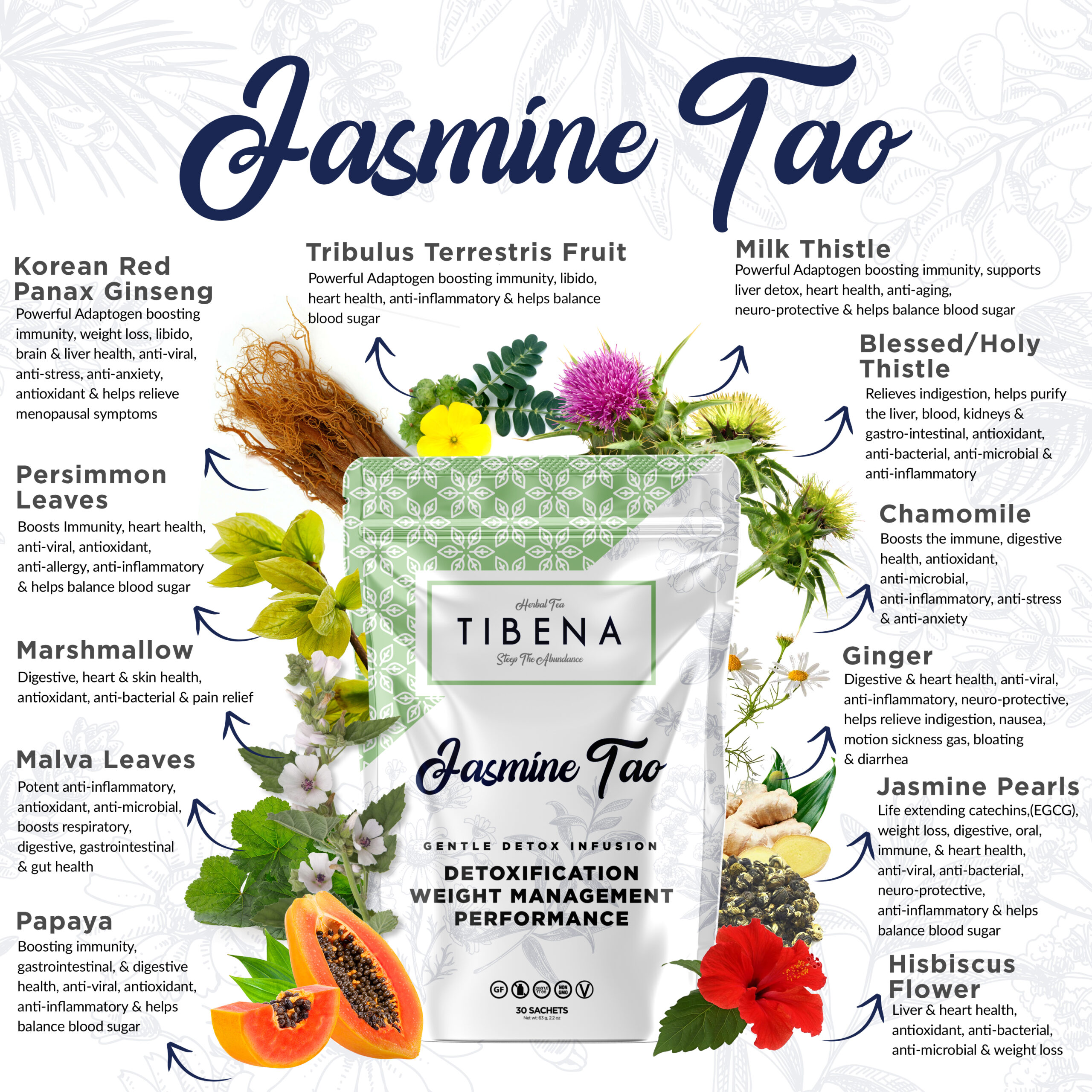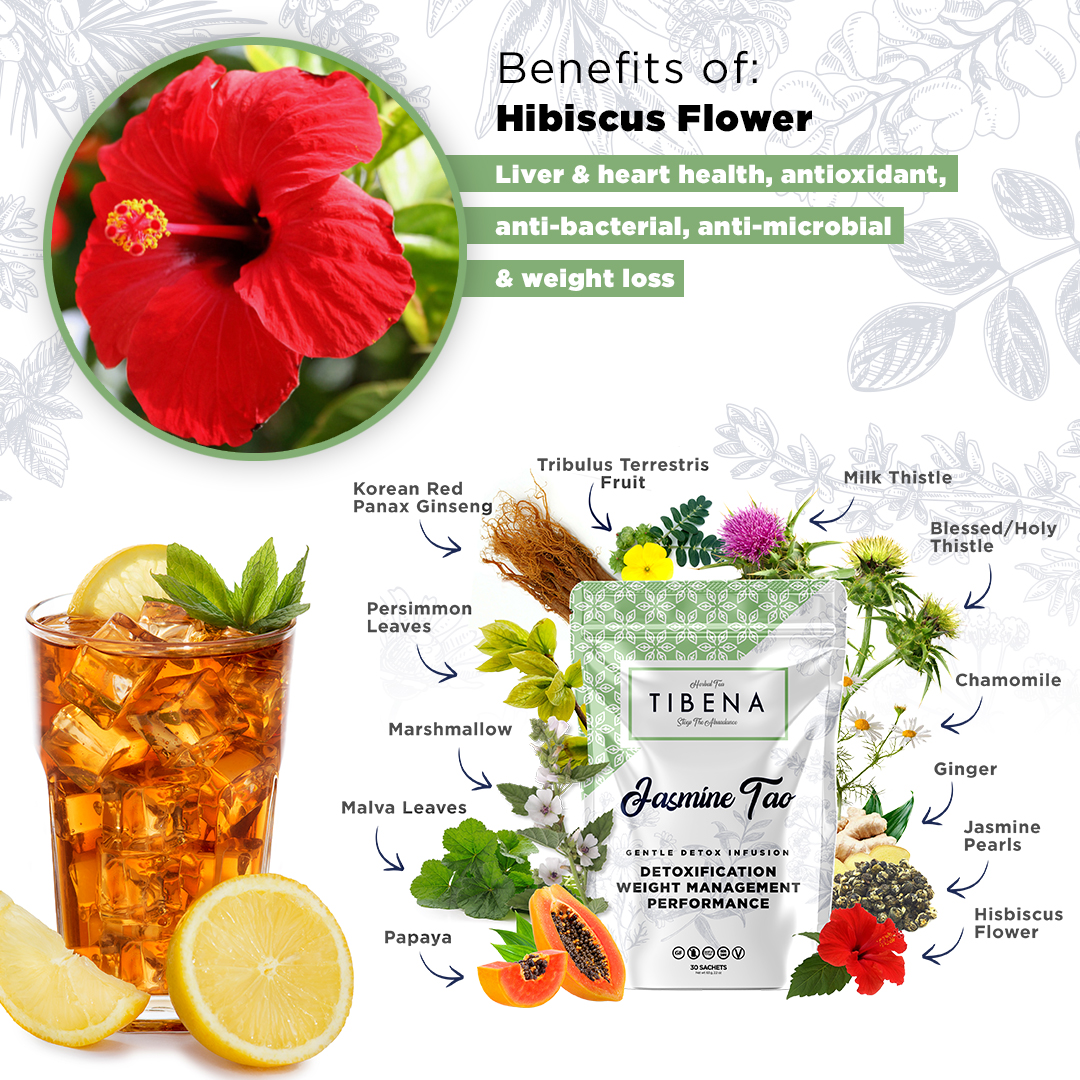
Studies have shown Potential Benefits:
Liver health, antioxidant, anti-bacterial, anti-microbial, hearth health, & weight loss
Hibiscus Flower
Hibiscus sabdariffa L. is a tropical plant rich in organic acids, polyphenols, anthocyanins, polysaccharides, and volatile constituents that are beneficial for the cardiovascular system. Antioxidants are molecules that help fight free radicals, which cause damage to your cells. Hibiscus flowers are rich in powerful antioxidants and may therefore help prevent damage and disease caused by the buildup of free radicals. Hibiscus sabdariffa beverages are commonly consumed to treat arterial hypertension. Benefits linked to drinking hibiscus tea, shows that it may lower blood pressure, fight bacteria and aid weight loss and protect against obesity.


https://pubmed.ncbi.nlm.nih.gov/21314460/ – Hibiscus anthocyanins increased the number of antioxidant enzymes and reduced the harmful effects of free radicals by up to 92%
https://pubmed.ncbi.nlm.nih.gov/16106391/ – Antioxidant & antihypertensive (may help lower blood pressure)
https://pubmed.ncbi.nlm.nih.gov/20018807/ – These results suggest daily consumption of hibiscus tea, in an amount readily incorporated into the diet, lowers BP in pre- and mildly hypertensive adults and may prove an effective component of the dietary changes recommended for people with these conditions. 65 people with high blood pressure were given hibiscus tea or a placebo. After six weeks, those who drank hibiscus tea had a significant decrease in systolic blood pressure, compared to the placebo
https://pubmed.ncbi.nlm.nih.gov/25875025/ – A review of five studies found that hibiscus tea decreased both systolic and diastolic blood pressure by an average of 7.58 mmHg and 3.53 mmHg, respectively
https://pubmed.ncbi.nlm.nih.gov/19678781/ – 60 people with diabetes were given either hibiscus tea or black tea. After one month, those who drank hibiscus tea experienced increased “good” HDL cholesterol and decreased total cholesterol, “bad” LDL cholesterol and triglycerides. Most studies showing a benefit of hibiscus tea on blood fat levels have been limited to patients with specific conditions like metabolic syndrome and diabetes.
https://pubmed.ncbi.nlm.nih.gov/24549255/ – 19 overweight people found that taking hibiscus extract for 12 weeks improved liver steatosis, the accumulation of fat in the liver which can lead to liver failure.
n conclusion, consumption of Hibiscus Flower Extract reduced obesity, abdominal fat, serum free fatty acids (FFA) and improved liver steatosis. Hibiscus could act as an adjuvant for preventing obesity and non-alcoholic fatty liver.
https://www.ncbi.nlm.nih.gov/pmc/articles/PMC4608971/ – A study in hamsters also demonstrated the liver-protecting properties of hibiscus extract, showing that treatment with hibiscus extract decreased markers of liver damage
https://pubmed.ncbi.nlm.nih.gov/21314460/ – Liver Health – Another animal study reported that giving rats hibiscus extract increased the concentration of several drug-detoxifying enzymes in the liver by up to 65%
https://pubmed.ncbi.nlm.nih.gov/24549255/ – Weight Loss – 36 overweight participants either hibiscus extract or a placebo. After 12 weeks, hibiscus extract reduced body weight, body fat, body mass index and hip-to-waist ratio
https://pubmed.ncbi.nlm.nih.gov/17765418/– Weight Loss – Our data confirm the anti-obesity effect of Hibiscus sabdariffa. Obese mice given hibiscus extract for 60 days led to a reduction in body weight.
https://www.ncbi.nlm.nih.gov/pmc/articles/PMC2742648/ – Weight Loss
https://www.ncbi.nlm.nih.gov/pmc/articles/PMC3593772/ reduced factors associated with cardiovascular disease
https://pubmed.ncbi.nlm.nih.gov/19962289/ – Effects of Hibiscus sabdariffa extract powder and preventive treatment on the lipid profiles of patients with metabolic syndrome. May help support healthy metabolism
https://pubmed.ncbi.nlm.nih.gov/22185846/ – May help maintain healthy cholesterol
https://pubmed.ncbi.nlm.nih.gov/12738084/ – May help blood pressure management
https://www.ncbi.nlm.nih.gov/pmc/articles/PMC4997428/ – Natural polyphenols for the treatment of cancer. Test-tube studies have found impressive results regarding the potential effect of hibiscus extract on cancer cells.
https://pubmed.ncbi.nlm.nih.gov/27618152/ – Hibiscus extract impaired cell growth and reduced the invasiveness of mouth and plasma cell cancer (test-tube study)
https://www.ncbi.nlm.nih.gov/pmc/articles/PMC4516987/ – Hibiscus leaf extract prevented human prostate cancer cells from spreading (test-tube study)
https://pubmed.ncbi.nlm.nih.gov/15791651/ – Hibiscus extract has also been shown to inhibit stomach cancer cells by up to 52% in other test-tube studies
https://pubmed.ncbi.nlm.nih.gov/23749748/ – anti-bacterial – Hibiscus extract inhibited the activity of E. coli, a strain of bacteria that can cause symptoms like cramping, gas and diarrhea (test-tube study)
https://pubmed.ncbi.nlm.nih.gov/27104041/ – anti-bacterial – Hibiscus extract fought eight strains of bacteria and was as effective as some medications used to treat bacterial infections (test-tube study)
